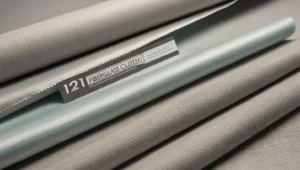Have you ever heard of a Jiniphee leak? It’s not a common term, but it’s something many people experience without even knowing the name of it. A Jiniphee leak can happen to anyone, and it might cause discomfort if not addressed. But don’t worry, this guide will explain everything about Jiniphee leaks, including what they are, why they happen, and how to stop them.
Jiniphee leaks can feel confusing, but by the end of this article, you’ll know exactly what to do. Whether you’re experiencing it yourself or someone you know is, you’ll find the answers here.
What Is Jiniphee Leak?
The term Jiniphee leak refers to a condition where there is an unexpected flow or release of a substance from the body. While it might sound scary, it’s often not a severe issue. Jiniphee leaks can affect people in different ways, and understanding what it is can help you take the right steps to deal with it.
In most cases, a Jiniphee leak happens because something in the body is out of balance. It could be related to how the body is working internally or be triggered by external factors. In any case, getting to the root cause is key to managing the condition.
Common Causes of Jiniphee Leak
There are many reasons why a Jiniphee leak could happen. Some of these causes are more common than others, but understanding the various reasons is important for prevention and treatment. Below are some of the top causes of Jiniphee leaks:
- Infection
An infection can sometimes cause fluid to leak from a part of the body. The body reacts to infections by producing extra fluid to help fight off germs, but sometimes that fluid escapes in ways that are uncomfortable or unexpected. - Allergies
If you’re allergic to something, your body might overreact and cause leakage. For example, allergic reactions can trigger nasal drips or watery eyes, which are types of Jiniphee leaks. - Hormonal Changes
Changes in hormones, especially in women, can sometimes lead to leaks. These hormonal shifts affect how the body manages fluids, sometimes leading to a Jiniphee leak. - Stress
Believe it or not, stress can cause leakage. When you’re stressed, your body doesn’t function as smoothly, and that can lead to various bodily reactions, including a Jiniphee leak. - Dietary Choices
What you eat can also contribute to leaks. Eating too much salty or spicy food, for instance, can cause your body to retain fluids in unusual ways, which may eventually lead to a Jiniphee leak. - Medical Conditions
Certain medical conditions, like diabetes or heart disease, can make a Jiniphee leak more likely. Managing these underlying conditions can reduce the likelihood of leakage.
Symptoms of Jiniphee Leak
How do you know if you’re experiencing a Jiniphee leak? The symptoms can vary, but there are a few common signs to watch out for. If you notice any of these, you might be dealing with a Jiniphee leak:
- Unexpected Fluid Discharge
If you’re noticing fluid where it shouldn’t be, this could be a sign of a Jiniphee leak. This fluid could come from the nose, eyes, or other parts of the body. - Discomfort
Some people feel mild discomfort when they experience a Jiniphee leak. It might feel like pressure building up inside the body. - Irritation
Leaking fluid can irritate the skin or cause redness and itchiness around the affected area. - Fatigue
If your body is working extra hard to deal with the leakage, you might feel more tired than usual. - Headaches
In some cases, a Jiniphee leak can cause headaches, especially if the cause is related to an infection or sinus issue. - Swelling
Sometimes a leak is accompanied by swelling in the area where fluid is being released. This might make the leakage even more noticeable.
How to Prevent Jiniphee Leak
While it’s not always possible to prevent a Jiniphee leak, there are steps you can take to reduce your risk. Here are some tips to help prevent this from happening:
- Stay Hydrated
Drinking plenty of water keeps your body’s fluids in balance and reduces the chances of leaks. - Practice Good Hygiene
Keeping your body clean helps prevent infections, which are a common cause of leaks. Be sure to wash your hands regularly and keep any areas prone to leaks clean and dry. - Manage Stress
Since stress is a possible trigger for leaks, finding ways to relax can help prevent them. Try deep breathing, meditation, or other stress-reducing activities. - Avoid Irritants
Allergies and irritants can cause Jiniphee leaks, so avoid things like dust, pollen, or certain foods that might trigger a reaction. - Exercise Regularly
Regular exercise helps keep your body functioning properly. A strong immune system and well-functioning internal systems make leaks less likely.
How to Treat Jiniphee Leak
If you’re already experiencing a Jiniphee leak, don’t panic. There are ways to treat it and stop the leaks from happening. Below are some simple methods you can try:
- Over-the-Counter Medications
If your leak is caused by allergies or a cold, over-the-counter medications might help. Antihistamines or decongestants can help control leaks caused by nasal drip or watery eyes. - Home Remedies
Home remedies like drinking warm tea or using a humidifier can help with leaks caused by sinus or respiratory issues. - Consult a Doctor
If you’re not sure what’s causing the leak, it’s a good idea to see a doctor. They can run tests to determine the root cause and recommend the best treatment. - Moisturize the Skin
If leakage is causing irritation or dryness, applying a gentle moisturizer can help soothe the skin and reduce discomfort. - Rest
Resting and allowing your body to heal is an important part of treating any health condition, including a Jiniphee leak.
When to See a Doctor for Jiniphee Leak
While a Jiniphee leak is often not dangerous, there are times when you should see a doctor. If the leak persists for more than a few days or if it’s accompanied by other symptoms like a fever, severe pain, or extreme swelling, it’s important to seek medical advice. A doctor can properly diagnose the condition and ensure it’s not related to a more serious health issue.
Conclusion
A Jiniphee leak might sound mysterious, but it’s usually nothing to worry about. By understanding the causes, symptoms, and treatments, you can manage the condition effectively. Whether it’s something that happens occasionally or more frequently, knowing how to prevent and treat it will keep you comfortable and healthy.
Always listen to your body, and if something doesn’t feel right, don’t hesitate to seek medical help. Leaks may be inconvenient, but they’re often easy to treat with the right approach. Stay hydrated, manage stress, and take care of your health to keep Jiniphee leaks at bay.






